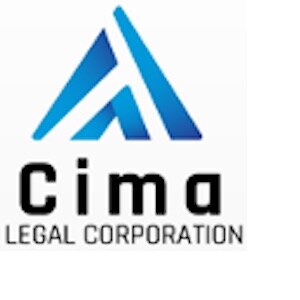Best White Collar Crime Lawyers in Quito
Share your needs with us, get contacted by law firms.
Free. Takes 2 min.
List of the best lawyers in Quito, Ecuador
About White Collar Crime Law in Quito, Ecuador
White Collar Crime in Quito, Ecuador, typically involves non-violent, financially motivated offenses committed by individuals, businesses, or government officials. Such crimes are often related to deceit and breach of trust and can include fraud, embezzlement, bribery, tax evasion, and money laundering. The legal framework surrounding these crimes is governed by Ecuador's Penal Code and emphasizes both preventive and punitive measures across various sectors.
Why You May Need a Lawyer
Seeking legal advice in the field of White Collar Crime can be crucial for several reasons. Firstly, individuals or businesses accused of such crimes require legal representation to navigate the complexities of legal procedures and build a strong defense. Secondly, victims of White Collar Crime may need legal support to reclaim losses and ensure justice. A lawyer can also be essential in cases involving regulatory compliance, internal investigations, or if you suspect wrongful accusations.
Local Laws Overview
In Quito, Ecuador, the key aspects of local laws pertinent to White Collar Crime include strict regulations on financial transactions, corporate governance, and anti-corruption measures. The country has adopted international standards for combating money laundering and terrorist financing, evident in its engagement with global financial watchdogs. Key provisions include detailed procedures for handling fraud cases, guidelines for corporate transparency, and robust mechanisms for prosecuting public sector corruption.
Frequently Asked Questions
What constitutes a White Collar Crime in Ecuador?
White Collar Crime in Ecuador encompasses fraud, embezzlement, bribery, money laundering, cybercrime, tax evasion, and other non-violent financial crimes.
How is White Collar Crime punished in Ecuador?
Punishments can range from fines and restitution of the misappropriated funds to imprisonment, depending on the severity and nature of the crime.
Can a business be held liable for White Collar Crime?
Yes, businesses can be held accountable for crimes committed by their representatives, particularly if they fail to exercise proper oversight or engage in fraudulent practices.
What are my rights if accused of White Collar Crime?
An accused has the right to legal representation, presumed innocence until proven guilty, and a fair trial under Ecuadorian law.
Can a victim of White Collar Crime take legal action?
Yes. Victims can file complaints with authorities and seek legal redress to recover losses and ensure offenders are prosecuted.
What steps can I take to prevent White Collar Crime in my organization?
Implement strong internal controls, conduct regular audits, establish clear ethical guidelines, and ensure compliance with legal requirements.
What should I do if I suspect a White Collar Crime?
It is advisable to confidentially seek legal advice to understand your options and consider internally escalating or reporting to authorities if necessary.
How long does a White Collar Crime investigation take in Quito?
Investigation timelines vary depending on the complexity of the case, with some taking months to years to resolve fully.
Are mediation or settlement options available in White Collar Crime cases?
In some cases, negotiation or mediation can be used to resolve issues, particularly where restitution is agreed upon between parties.
Is international legal assistance available for White Collar Crime in Ecuador?
Yes, Ecuador cooperates with international law enforcement and legal entities to address crimes that cross national borders. Legal experts can facilitate these processes.
Additional Resources
For more information and assistance on White Collar Crime in Quito, Ecuador, the following resources may be helpful:
- Ecuadorian Penal Code and related legal texts
- Superintendence of Companies, Securities and Insurance
- Financial Analysis Unit (Unidad de Análisis Financiero y Económico)
- Anti-corruption Commission
- Legal aid organizations and local law firms specializing in criminal defense
Next Steps
If you need legal assistance regarding White Collar Crime in Quito, consider the following steps:
- Consult with a lawyer who specializes in White Collar Crime.
- Gather all relevant documentation and evidence related to your case.
- Understand your rights and potential obligations under Ecuadorian law.
- Consider professional advice on compliance and preventive measures to mitigate future risks.
- Stay informed on any updates or changes in local legislation that could affect your situation.
Lawzana helps you find the best lawyers and law firms in Quito through a curated and pre-screened list of qualified legal professionals. Our platform offers rankings and detailed profiles of attorneys and law firms, allowing you to compare based on practice areas, including White Collar Crime, experience, and client feedback.
Each profile includes a description of the firm's areas of practice, client reviews, team members and partners, year of establishment, spoken languages, office locations, contact information, social media presence, and any published articles or resources. Most firms on our platform speak English and are experienced in both local and international legal matters.
Get a quote from top-rated law firms in Quito, Ecuador — quickly, securely, and without unnecessary hassle.
Disclaimer:
The information provided on this page is for general informational purposes only and does not constitute legal advice. While we strive to ensure the accuracy and relevance of the content, legal information may change over time, and interpretations of the law can vary. You should always consult with a qualified legal professional for advice specific to your situation.
We disclaim all liability for actions taken or not taken based on the content of this page. If you believe any information is incorrect or outdated, please contact us, and we will review and update it where appropriate.











